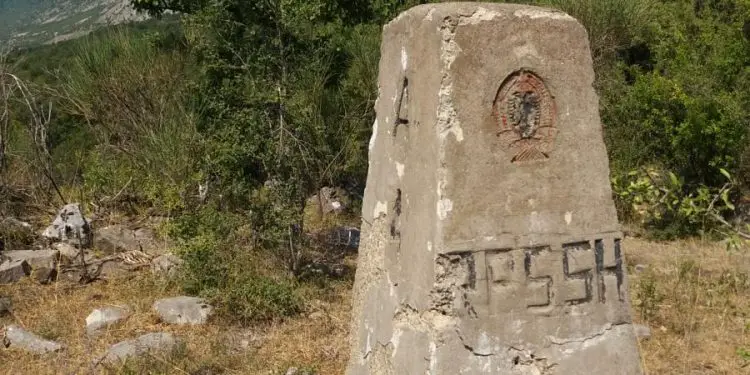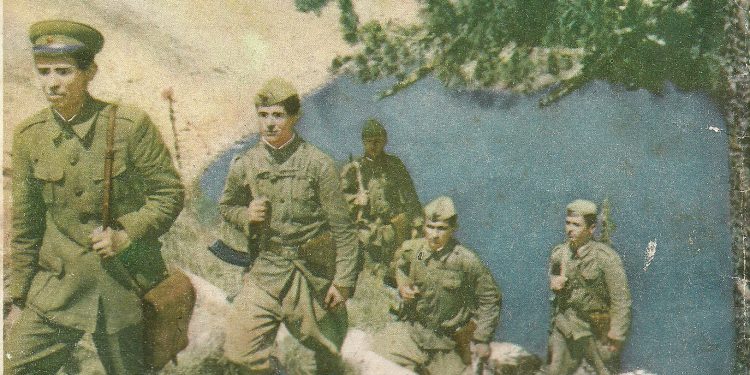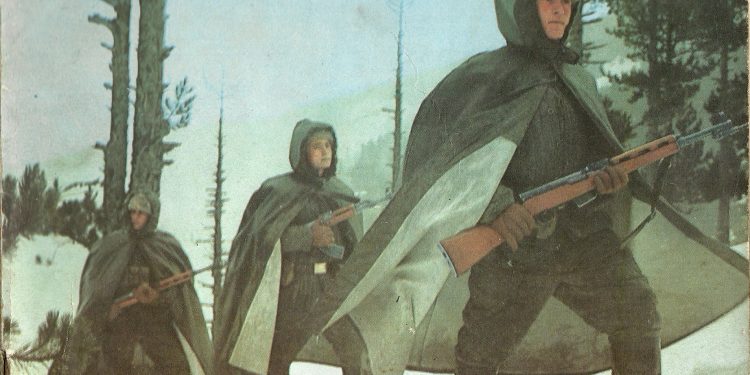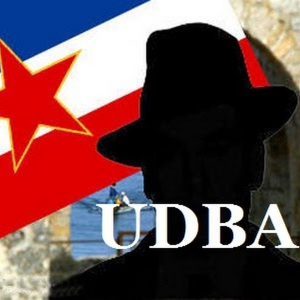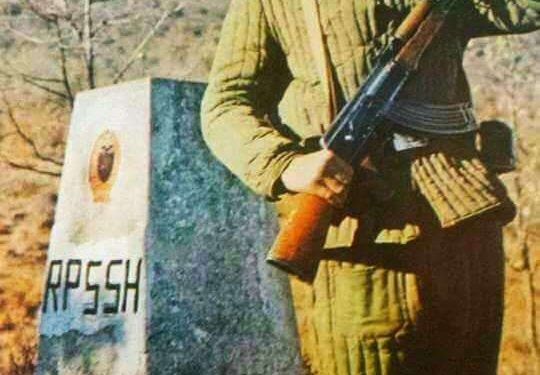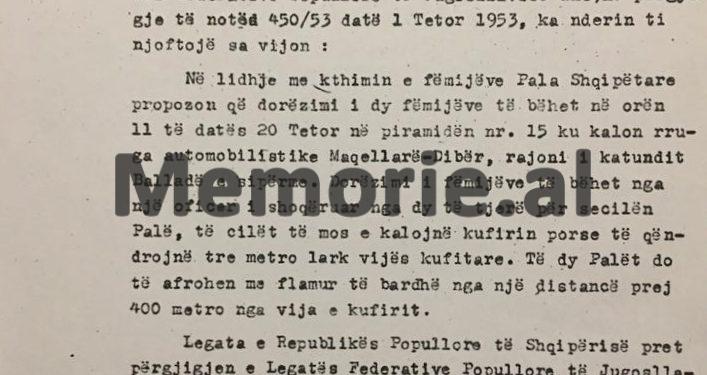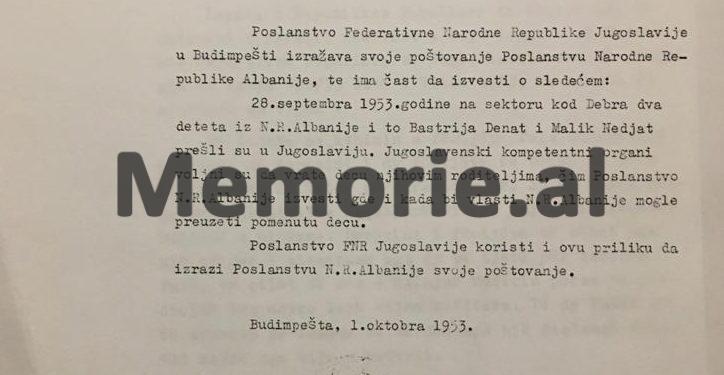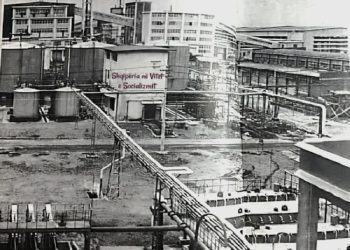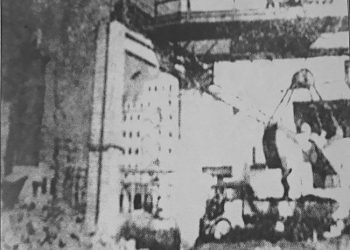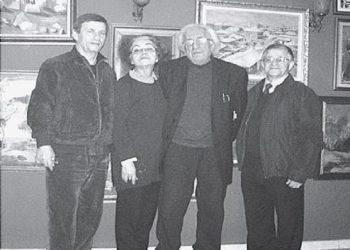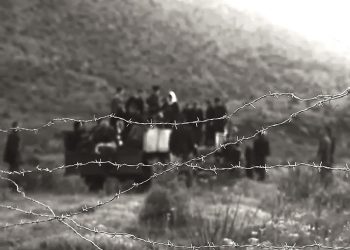Dashnor Kaloçi
Memorie.al publishes some unknown documents extracted from the Archive of the Ministry of Foreign Affairs in Tirana that for almost half a century have been classified as “Top secret” and already declassified which belong to 1953 and represent a correspondence between the Albanian Legation in and that of the Federal People’s Republic of Yugoslavia in the Hungarian capital, Budapest, regarding the procedures and rules that would apply to the exchange of some fugitives from the two respective countries.
What is said in the text of the note of the Yugoslav government legation regarding the exchange procedures of the fugitives that would be carried out in the pyramid no. 15 of the border point of Blada near Maqellara, where the two delivery groups had to stay 400 meters away from the border line from a white flag, where should there be no armed service units?!
As well as the correspondence of the Albanian legation in Budapest with the Ministry of Foreign Affairs in Tirana, for the grade of the Yugoslav legation in Budapest, regarding the two Albanian citizens from Himara, Polikron and Anton Nallano, whom they sought to return to Albania, after had been held for a long time in a Sarajevo hospital…
Although Enver Hoxha’s communist regime had severed ties with Marshal Josif Broz Tito’s Yugoslavia since 1949, severing all bridges of communication with the Belgrade government, for 40 years between official Tirana and our northern neighbors a secret agreement, concluded between them since the end of the War, when the two countries were enjoying the “honey years”! That secret agreement, which worked best until the early 1990s, had to do with the reciprocal exchange of fugitives from the two countries seeking political asylum. But what were the points of that agreement, by whom and when was it signed and what did it sanction? What were Tirana’s mutual obligations with Belgrade and what procedures were followed between the two countries to facilitate the exchange of political fugitives? Regarding all these, Memorie.al” has only the documents where it talks about the technical procedures of the exchange of fugitives and the ways in which they have been implemented concretely, with some of the Albanian and Yugoslav citizens who had crossed the borders of their countries illegally. . These documents have been extracted from the Archive of the Ministry of Foreign Affairs in Tirana and for years have kept the logo “Top secret”, and have long been declassified and are open to scholars and the general public.
Information of the Yugoslav Legation in Budapest
In the early 1950s, when relations between official Tirana and Belgrade were severely strained, information on Albanians fleeing Yugoslavia and procedures for their exchange were provided through the Yugoslav Legation in Budapest, which issued an official note. announced the Albanian Legation in Budapest. In one of these grades, it says:
Legation of R.P. of Albania Budapest
Legata and R.F.P.J. in Budapest pays tribute to the Legation of R.P. of Albania, and has the honor to announce the following: On September 28, 1953, in the Dibra sector, two children from Albania, Bastri Donati and Maliq Nexhat, crossed into Yugoslavia. The competent Yugoslav authorities want the children returned to their parents, but the Legation of R.P. of Albania to notify where and where the bodies of R.P. of Albania can take over the mentioned children.
Legation of R.P.F.J. which also uses this opportunity to appear before the Legation of R.P. of Albania its honors.
Budapest. October 1, 1953.
This information of the Yugoslav Legation in Budapest, the Albanian legation forwarded to the Ministry of Foreign Affairs in Tirana, which then presented it to the Ministry of Interior which dealt with its implementation according to the procedures of the agreement.
Exchange procedures
The Ministry of Interior in Tirana, through the Ministry of Foreign Affairs, proposed to the Yugoslav side the manner and procedures to be followed for the return to Albania of two Albanian citizens from the district of Dibra, who had fled to Yugoslavia. The letter from the Ministry of Interior states:
Ministry of Foreign Affairs in Tirana.
Regarding the proposal of the Yugoslav authorities for the surrender of the two Albanian pioneers who crossed the border into Yugoslav territory on September 28, 1953, it is necessary to proceed as follows:
To set the date and time of delivery, delivery to be done from 10 am to 11 am on October 20, 1953.
Place of delivery to be pyramid no. 15, where the Maqellarë-Dibër road passes (Upper Bladë border region).
Delivery should be made exactly at the border line, not allowing it to be crossed by either party. The groups of both parties that will make the delivery stay up to 3 km. lark border line.
Delivery groups to consist of 3 people plus 3-4 group guard soldiers.
At a width and depth of 200 m. of the handover sector to have no border service units of both parties, during the handover, except the guards of both groups.
Before the handover meeting, raise the white flag on both sides, from a distance of 400 m.
To be in charge, the Commander of the Unit no. 293 Bishop, Major Gani Daughter and Political Commissar Lieutenant Pandi Pino, accompanied by an officer of the Directorate of Internal Affairs Bishop.
According to the documents found in the Archive of the Ministry of Foreign Affairs, this proposal of the Ministry of Interior in Tirana was accepted by the Yugoslav side and then the return to Albania of two Albanian citizens from the district of Dibra who had fled to the neighboring country. But based on the secret agreement of the two countries, their return was made by exchanging them with three Yugoslav citizens who had fled their country and were in Albania.
The telegram of the Albanian ambassador in Budapest, Piro Koçi, talks about this, informing the Foreign Ministry in Tirana that the Yugoslav side demands the repatriation of its three citizens.
That telegram reads:
Ministry of Foreign Affairs.
Budapest 18.X. 1953. Top secret
With the note No. 579: 53 dated 17 November the Yugoslav Legation announces that on June 15 of this year three Yugoslav children from Dibra, named Nikola Prokosh, born in 1939, Reshid Isko 1940 and Vetko Mitreski 1938, crossed the border for unknown reasons. and were held in the RPSH. According to the letters received by the parents, they are located in Vlora. The Legation broadcasts the request of the State Secretariat for their return to Yugoslavia.
Piro
Telegram of Ambassador Piro Koçi for the two fugitives from Himara
Ministry of Foreign Affairs
Budapest 18 December
Yugoslav Legation with grade no. 691/53 announces that since October 19, 946, two Albanian patients named Polikron Nallano and Anton Nallano from Himara are in the clinic of the Sarajevo hospital. From this date until October 31, 953 1475280 dinars have been spent for them. Their payment is required and in addition if they want to continue the treatment that costs 800 dinars per day. If not, they are required to know where and when they can be delivered by our bodies.
Piro
Verbal Note
The Legation of the People’s Republic of Albania in Budapest presents its honors to the Legation of the Federal Republic of Yugoslavia, and in response to note 459/53 dated 1 October 1953, has the honor to announce the following: Regarding the return of two children, the Albanian side proposes that the delivery of the two children take place at 11 o’clock on October 20 in Pyramid no. The delivery of the children should be done by an officer accompanied by two others for each party, who should not cross the border but stay three meters away from the border line. Both sides will be approached by the white flag from a distance of 400 meters away from the border line. The Legation of the People’s Republic of Albania awaits the response of the Federal People’s Legation of Yugoslavia if it agrees with the proposal of the Albanian side for the procedure of handing over two children.
Budapest on 12 October 1953
Testimony of the Security Officer: An Albanian fugitive was exchanged with 3 Kosovars and Yugoslav citizens were held at General Perviz’s tower in Lac. According to the testimony of one of the former senior officials of the State Security (N.L.), the victims of the secret agreement between Tirana and Belgrade, on the Yugoslav side were mainly Kosovars. When official Tirana asked the Belgrade government for the return to Albania of its citizens who had fled to Yugoslavia, in return it handed them over to the Kosovar Yugoslav side who had fled to Albania. It has been quite rare for the exchange of Albanian fugitives in Yugoslavia to take place with the Yugoslav citizens of its six republics. Most Kosovars with Yugoslav citizenship and Albanian nationality who, forced by Serbian violence, fled and came to Albania, were kept isolated in a secret place on the outskirts of the town of Laç, which in that town is known as the “General Tower”. Perviz”, while in the secret facilities of the Ministry of Interior of that time, as the “Filtering center of Yugoslav citizens”. That big house is surrounded on all four sides by high walls and stands where 24-hour police officers armed by the Kruja Internal Branch were on duty. The Kosovars held there in isolation were considered UDB agents, and they stayed in the rooms of that house until it was their turn to exchange with an Albanian citizen who had fled to Yugoslavia. According to the former senior State Security officer, the exchange of fugitives was done according to their importance and not in fair numerical ratios. There have been cases when an Albanian who fled to Yugoslavia, at the request and suggestion of official Tirana, was exchanged with two or three Kosovars from those held at the Perviz Tower in Lac. Among the Albanians who fled to Yugoslavia over the years, who later returned to Albania in exchange for Kosovars with Yugoslav citizenship, were also brothers Adem and Ismet Allçi from Tropoja, in 1963, Lieutenant Gramoz Omari, originally from Gjirokastra, brothers Skënder and Shpëtim Marku from Laçi etc. Gramoz Omari, a relative of Enver Hoxha, a former well-known musician in the orchestra of the “Dajti” hotel in Tirana who served as a military doctor at a border post in Vermoshi, after staying 4 years in Montenegro, UDB returned it by exchanging it with 3 Kosovars. The military court in Shkodra sentenced Omar to death and he was executed on New Year’s Eve 1969. While the brothers Shpëtim and Skënder Marku (former commander of prison 313 in Tirana in 1997 with the rank of major), were the last victims of the agreement of State Security Secret Service with the UDB, which the Yugoslav side immediately returned to Albania on June 1, 1988. /Memorie.al




